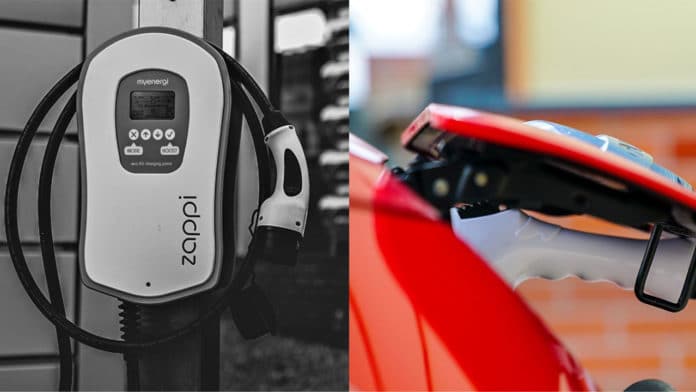Electric car drivers could save an average of £110 a year by using “smart charging” to power up their cars at the best possible times, a report has shown. Smart charging reduces the carbon footprint of car charging by over 20%, providing a strong environmental incentive, the research team involving Swansea University experts says.
Smart charging helps spread out demand for electricity to avoid overloading the National Grid. This is a major issue given the huge growth in the number of electric vehicles, with up to 11 million forecasts to be on Britain’s roads by 2030.
Already people can get cheaper electricity by charging at certain times, usually in the early hours of the morning. But smart charging could go much further than this. It allows drivers to take advantage of cheaper prices when electricity from wind and solar farms is high and when demand is low. The chargers use a data connection to communicate with cars about when is best to plug into the grid.
The report is based on research by the government-funded FRED project (Flexibly Responsive Energy Delivery), which seeks to demonstrate how flexibility in charging can help to avoid the grid becoming overloaded in peak periods. Led by Evergreen Smart Power, it also involved Swansea University energy experts from the SPECIFIC Innovation and Knowledge Centre, in collaboration with myenergi, GenGame, and Energy Systems Catapult.
The research involved 250 members of the public who already had electric vehicles and were using myenergi’s zappi charging points and software to help them charge more efficiently.
Throughout the project, Evergreen managed the FRED participants’ EV charging using its smart charging software platform. The platform used artificial intelligence to understand customer habits and automatically charge their cars according to their needs while simultaneously reducing costs and carbon footprint. In addition, experts found that further savings of up to 45% are possible with better incentive schemes.
“Our research showed that smart charging using the platform can make a big difference, even where people are already charging efficiently. It cuts the cost and the carbon for cheaper, cleaner driving,” said Peter Bullock from Evergreen. “In our emerging green energy system, the energy we generate, for example through wind and solar – can be variable. Luckily, with electric cars, it is easy to be flexible with the times we consume energy. This is where smart charging is crucial, helping us create an energy system that is both low-carbon and efficient.”
